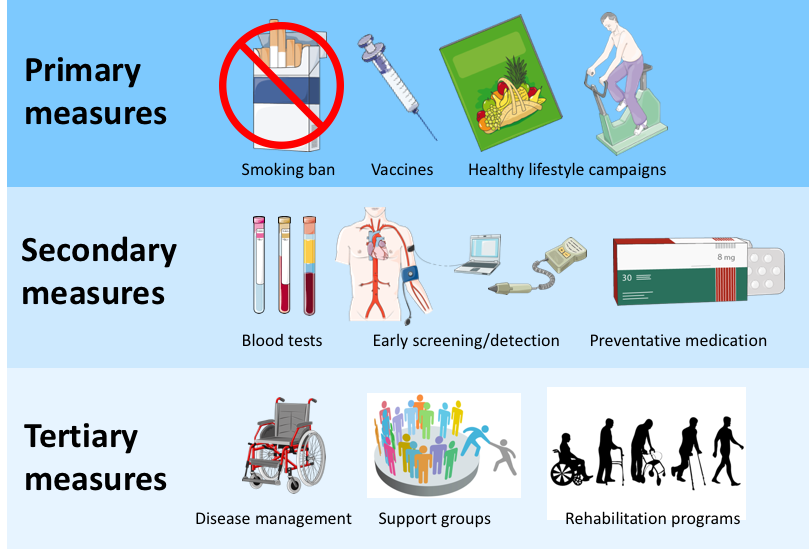The ACA has actually enabled young individuals to remain on their parents' health plans till age 26. It minimized what seniors spend for prescription drugs, and it allowed the government to evaluate healthcare programs that lower costs and improve care. For people with pre-existing conditions, the ACA says insurance provider can not turn away sick people or charge them more for coverage than they charge healthy consumers.
Past GOP plans haven't preserved the protections, either. For instance, under a Republican bill that stopped working in 2017, states would have had the power to let insurance companies opt out of securities. Provided all this, maybe the much better concern is: what are the modifications that Trump does want to make to the Affordable Care Act, and, how might those modifications vary from what a President Biden might carry out in the next four years?Here are the fundamentals of what we understand so far.
Win McNamee/Getty Images To get a concept for what Trump may do next, it's worth taking a look at how his administration has actually already altered the ACA since he took office. In 2017, Trump and Republicans in Congress zeroed out the Obama-era mandate on coverage, enabling Americans to when again go insurance-free, without risking charges.
However the reality is that ACA coverage was currently unaffordable for lots of individuals making over $50,000 (who usually do not certify for subsidies). "The ACA was more concentrated on sicker and lower earnings populations, and attempting to truly offer look after underserved populations," Fann stated. The Trump administration has likewise permitted more individuals to purchase insurance that falls beyond the ACA's initial guidelines.
The strategies have actually been derided by Democrats as "scrap insurance coverage," however Trump authorities state they give some level of coverage to people who can't afford ACA plans, who would otherwise be uninsured. "I would state the Republican politician strategy is more of broader tax credits, attempting to draw in more people," Fann said.
Not known Incorrect Statements About A Health Care Professional Should Question The Use Of Metoclopramide For A Patient Who Is Taking
Fann says among the finest strategies that Trump might take, if reelected, would be to essentially not do anything for a while, and let the market mature. Certainly, Trump's campaign website dedicated to healthcare appears more concentrated on listing his achievements so far, instead of promising anything brand-new.

" If we leave the ACA alone, it's going to continue to improve," Fann said. "Let's just leave this thing alone until we comprehend what's going on." Democratic presidential nominee Joe Biden prepares to leave New Castle, Delaware, before taking a trip to Grand Rapids, Michigan. Chip Somodevilla/Getty Images If Biden wins, there will be a various, and relatively bolder set of top priorities for reshaping the ACA.The possibility of a public choice (something rather like Medicare, but available to all Americans under 65) is one of the most significant distinctions between his plan and Trump's.
" You're going to see a big push in trying to make it more budget friendly," Emanuel stated. Another campaign promise from the Biden group: decreasing the cap on how much coverage Article source in the ACA market can cost, from 9. 86% of an individual's income to 8. 5% (how many jobs are available in health care). Despite who wins the election, it's going to take a lot longer than four more years for this health care law to develop.
Or the changes that have actually been given the Medicare and Medicaid systems, considering that they were signed into law by President Johnson in 1965. President Obama's Affordable Care Act has actually joined this cannon of sweeping reforms. As such, it will take decades to improve, through many more presidents, and a lot more sessions of Congress.
President Trump spoke Substance Abuse Center about expanding health coverage choices for small companies in a Rose Garden event at the White Home in June. Al Drago/Bloomberg/Getty Images Al Drago/Bloomberg/Getty Images President Trump spoke about broadening health protection alternatives for small companies in a Rose Garden event at the White Home in June.
Some Known Details About Which Two Barriers Will Prevent The Us Health Care System From Reaching An Ideal State?

And Trump adviser Kellyanne Conway has shown a healthcare announcement might can be found in September. Behind the declarations lies a dilemma: whether to stray beyond efforts underway to improve the nation's healthcare system loosening up insurance coverage policies, speaking about drug rates and expanding tax-free health cost savings accounts to establish an overarching strategy.
A thorough plan could act as a lightning arrester for opponents. Alternatively, not having a plan for replacing a few of the most popular parts of Obamacare such as its coverage protections for people with preexisting medical conditions could leave the GOP flatfooted if an administration-supported lawsuit now before the 5th Circuit Court of Appeals were to invalidate the sweeping health law.
" There is a danger with action or inactiveness." No matter how the 5th Circuit rules, its decision, which could come soon, is likely to be remained while the concern heads to the Supreme Court. Such a delay would offer the Trump administration time to flesh out a proposal if the appeals judges throw away the ACA.
Right now, surveys reveal the public is concentrated on health costs, says professor Robert Blendon, director of the Harvard Viewpoint Research Program, which studies public understanding of health care and policy problems. Customers are concerned about what they pay at the pharmacy counter or about the sum of their insurance premiums and deductibles.
However if the fifth Circuit upholds a Texas judgment reversing the whole ACA, "that alters the entire structure," he includes. "The administration might not simply state, 'Oh, we'll have something fantastic.' They would need to have something outlined." Fans and critics state likely aspects are already in plain sight, both in executive actions and propositions in the president's budget along with ina little-noticed interagency white paper launched late in 2015, called "Reforming American's Health Care System Through Choice And Competition." The president has actually won appreciation both from conservatives and from liberals for efforts such as his proposal to require medical facilities to post their actual, negotiated prices and some techniques to lower drug rates.
Get This Report about What Home Health Care Is Covered By Medicare
On these topics, "a lot of what they've proposed has been quite smart," states Shawn Gremminger, senior director of federal relations at the liberal Families USA advocacy group. Still, Gremminger points to other administration actions such as loosening rules on health insurance providers to permit sales of what critics call "junk" insurance coverage policies, because they don't have all the customer securities of ACA policies, or promoting work requirements for Medicaid recipients as strong hints to what may be in any ultimate election-related plan.
" We completely anticipate it will consist of a lot of really awful concepts." For other policy ideas, some Trump advisers, like Brian Blase, a previous unique assistant to the president at the National Economic Council now with the Texas Public Law Structure, state look no more than that 2018 interagency report.
departments of Labor, Treasury and https://postheaven.net/maryld3grb/in-a-recent-governmental-dispute-one-prospect-specified-several-times-that Health and Human Solutions, includes more than 2 dozen recommendations that broadly focus on loosening up federal and state policies, restricting healthcare facility and insurance provider market power and prompting patients to be more price-conscious shoppers. Numerous are enduring, free enterprise favorites of Republicans, such as increasing the usage of health savings accounts which permit consumers to reserve money, tax-free, to cover medical costs.